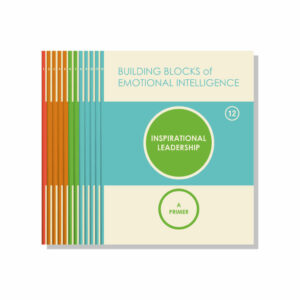

Develop the Three Levels of Organizational Awareness
March 25, 2016 Time to read: 2 min.
Organizational Awareness: Inner, Outer and Other Focus
In this brief video clip from the Brainpower: Mindsight and Emotional Intelligence in Leadership with Daniel Goleman and Daniel Siegel, Daniel Goleman discusses systems thinking, three levels of organizational awareness, and visionary leadership. He points out that outstanding leaders are aware of the many systems within organizations. Such leaders start with the level of self-awareness and self-regulation, move outward with empathy toward awareness of interpersonal relationships, and then further to awareness of the whole organization.
Dr. Goleman has written about this inner-other-outer “triple focus” in many contexts, including organizational leadership and education. In his article, “Why Leaders Need a Triple Focus,” adapted from his book, Focus: The Hidden Driver of Excellence, Goleman said,
“When Accenture interviewed 100 CEOs about the skills they needed to run a company successfully, a set of 14 abilities emerged, from thinking globally and creating an inspiring shared vision, to embracing change and tech savvy. No one person could have them all. But there is one “meta” ability that emerges from research on leadership: self-awareness. Chief executives need self-awareness to assess their own strengths and weaknesses, and so surround themselves with a team of people whose strengths in those core abilities complement their own. This means inner focus.
Companies also need leaders who have an other-focus””who understand the motivations of their employees and want to help other people be successful, too. For instance, they realize that if someone lacks a given strength today, they can work to develop it.
Such leaders take the time to mentor and advise. In practical terms this means:
- Listening within, to articulate an authentic vision of overall direction””from the heart and to the heart””that energizes others even as it sets clear expectations.
- Paying attention to people’s feelings and needs, and showing concern.
- Listening to advice and expertise; being collaborative and making decisions by consensus.
- Coaching, based on listening to what the person wants from their life, career, and current job….
Of course that doesn’t mean that leaders can ignore other concerns, like market trends or innovation, to meet changing demands. But the same attention skills that can help manage one’s own emotions and work relationships can help leaders stay more flexible and allow for better outer focus.”

Brainpower: Mindsight and Emotional Intelligence in Leadership is a collection of streaming videos and audio downloads with Daniel Goleman and Daniel Siegel.
Brainpower provides leaders, executive coaches, management consultants, and HR professionals with a science basis for their leadership development work.







